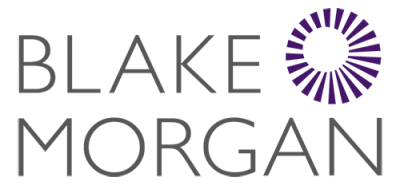Author: Euan Mitchell
This October the Land Registry took a significant leap towards their goal of digitization, by partnering with tech-company and blockchain experts R3. In a deal potentially worth up to £2.25 million, R3 will allow the Land Registry to use their blockchain platform Corda.
The move happens just one year after the Digital Street project was first launched as part of HM Land Registry's five-year business strategy. The research and development project’s underlining aim is to make land registration and property transactions more transparent, secure and customer centric, through technological innovation spearheaded by blockchain.
What is blockchain?
Blockchain is a type of distributed ledger technology (DLT) used to record transactions across geographically spread devices. Bitcoin first popularized the technology in 2011, but the technology has advanced well beyond its cryptocurrency origins.
Unlike traditional ledgers, blockchain is decentralized and managed autonomously. Rather than relying on a central administrator or settlement system to transact between users, blockchain relies on a community of users to collectively regulate how the data is modified and how the common shared ledger is updated, by using sophisticated consensus mechanisms.
Consensus mechanisms securely govern the data and certify transactions. The mechanism has a set of predefined rules and assumptions, which must be satisfied before any device or participant can update the blockchain. This ensures the unequivocal ordering of transactions and guarantees the sanctity and immutability of the blockchain across the network.
How will it change conveyancing?
The Land Registry wants to use blockchain technology to synchronize and optimize the relationship between solicitors, buyers, sellers, estate agents and mortgage providers, by rendering exchange of data more frictionless and trust worthy, namely through the utilisation of smart contracts.
The Swedish Land Registry have already piloted a blockchain system that employs smart contracts to automate transactions, allowing buyers and sellers to execute contracts digitally. Smart contracts allow for greater transparency, by enabling all interested parties to trace the progress of the deal in near real-time.
Traditionally, all the documentation required in a purchase, such as bank statements, credit reports, searches, existing loan information, title deeds, property valuations, loan agreements etc. are held by different institutions and are processed and copied manually; each time being checked and authenticated, a process susceptible to human error.
Similarly, when purchase of a property completes, the Land Registry must authenticate the transaction and update the title to reflect the change in ownership, relying on copies of documents supplied by solicitors. This information is then accessed and transferred again from each ledger to the next.
With blockchain and smart contract technology, all the information is assembled into one virtual space, one distributed ledger and is authenticated at the point of upload, through consensus mechanisms, which governs the data. This is more accurate than human-authentication and quicker than processing the paperwork manually and could also reduce overall cost. It is estimated that smart contracts could in fact reduce the time it takes for a deal to complete from several months to only a few days or even hours, according to blockchain Swedish Blockchain start-up ChromaWay.
Are we ready for blockchain?
Blockchain technology has the potential to radically change the property landscape, but the technology is still in its embryonic stage. In order to deliver the wide-scale integration needed, the technology still requires further standardisation and a clearer regulatory structure. However, the lack of collaboration amongst blockchain firms and the inherently complex nature of blockchain could mean that the law struggles to keep up.
Blockchain’s core quality is its power to connect and distribute information amongst its users, but its sheer sophistication could prevent its universal application. The Land Registry's partnership with R3 is an exciting leap into the future of conveyancing, but it is clear that there are many more incremental steps to be made before the benefits of blockchain can truly be unlocked.









